5 DIY gnat traps our pest pros know really work, including natural solutions like vinegar
Our entomologists share quick, easy, and effective solutions to get rid of gnats that are non-toxic and affordable

Chiana Dickson
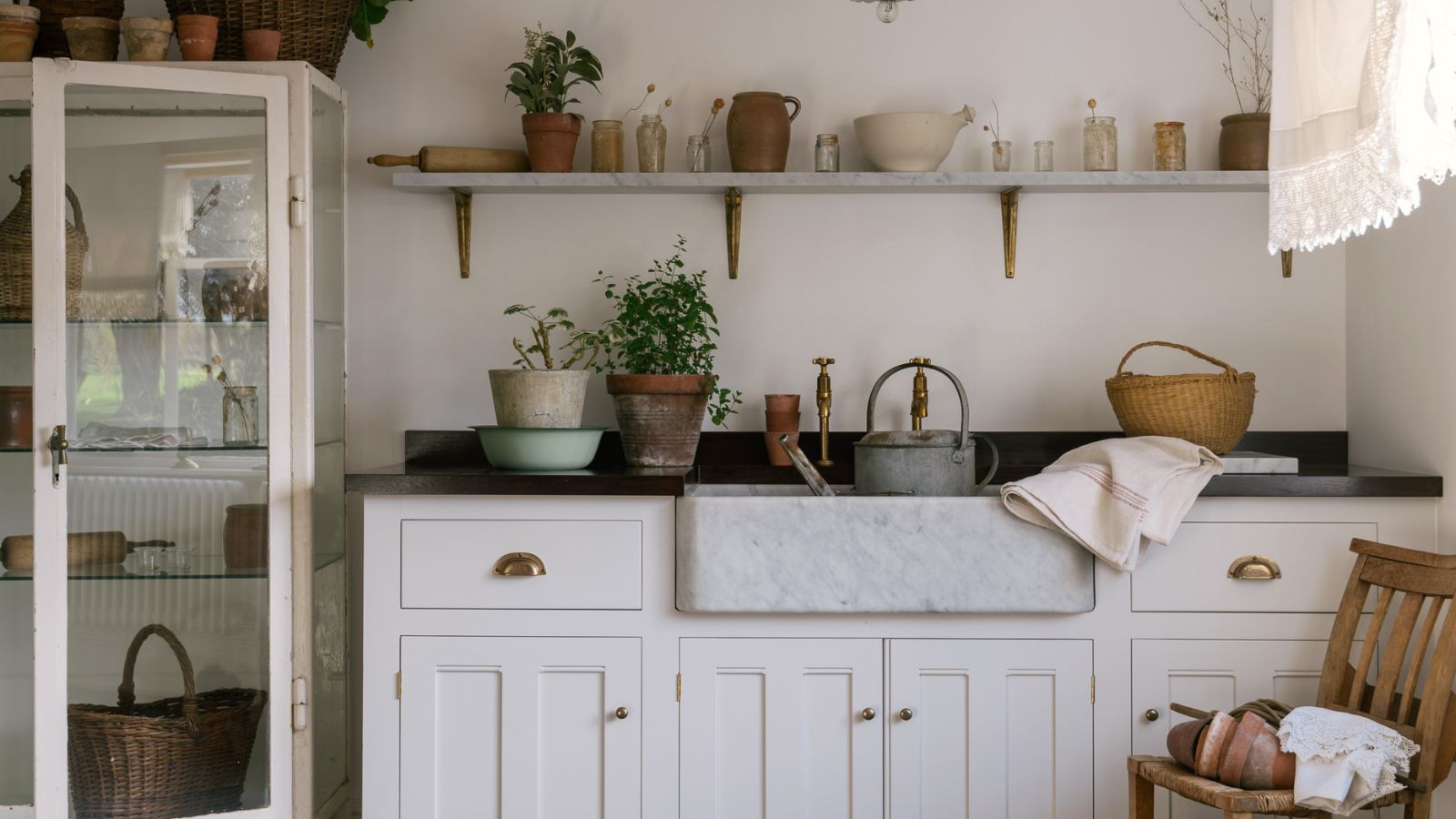
If you're looking for DIY gnat traps, we feel your pain as these little insects are among the most irritating household pests. Whilst they might not do a great deal of damage, they can still be a nuisance and hygiene risk, contaminating food, damaging plants, and making daily tasks more unpleasant.
They are also prolific breeders, so a gnat infestation can quickly escalate if left unchecked, making it a challenge to eradicate without harsh chemicals.
Although you can buy gnat traps online, there are also simple, affordable and natural remedies to get rid of gnats that work just as effectively, if not better.
Here, entomologists share their top tips on creating quick and easy-to-make DIY gnat traps.
How to make 5 DIY gnat traps
Once you've picked one of our DIY gnat traps to try, be it getting rid of gnats with vinegar or otherwise, consider where you'll place your mix carefully.
'The placement of your DIY gnat traps is key,' says Georgios Liakopoulos, exterminator at Fantastic Pest Control. 'Find out where the gnats are most prevalent, like fruit bowls, garbage bins, or houseplants. This will maximize the effectiveness of the traps.'
The best way to do this might be to ask yourself why you have gnats in your house and work from there.
Design expertise in your inbox – from inspiring decorating ideas and beautiful celebrity homes to practical gardening advice and shopping round-ups.
1. Make a vinegar trap
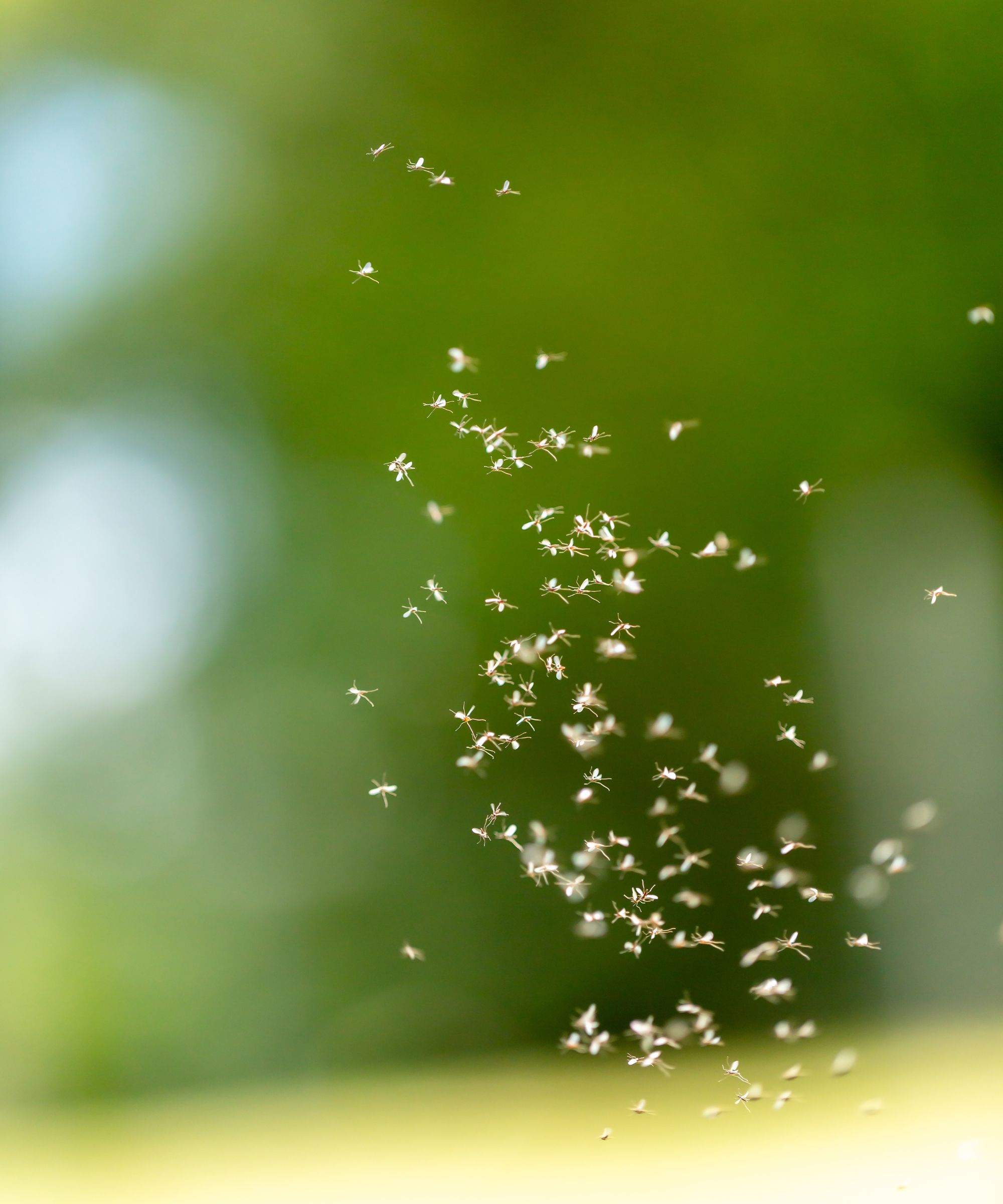
Making a gnat trap with vinegar is an affordable, effective and non toxic way to tackle these annoying flying insects.
Using a white vinegar trap is one of the most common ways of getting rid of fruit flies in the house, and is the method that uses the least effort.
There are two main reasons why white vinegar is so effective in DIY gnat traps, explains Marc McDermott, pest control expert at Pest Source.
First is the potent smell, with white vinegar being incredibly attractive to gnats and flies.
‘The acetic acid in vinegar mimics the smell of overripe fruits and fermenting substances,’ Marc explains. ‘As natural food sources for gnats, this smell draws them in and tricks them into falling into the liquid and drowning.
‘On the topic of lethality, the strong acid works to break down their exoskeleton,’ Marc continues. ‘This causes them to dehydrate and die. It is an excellent non-toxic method for around the home.’
Some experts suggest that other vinegars may be even more effective at this, however.
‘Apple cider vinegar is a little more appealing to gnats than white vinegar, although both will do the trick,’ says Megan Wede, pest expert and co-owner of Done Right Pest Solutions. This vinegar is a little sweeter, making it more alluring to passing flies.
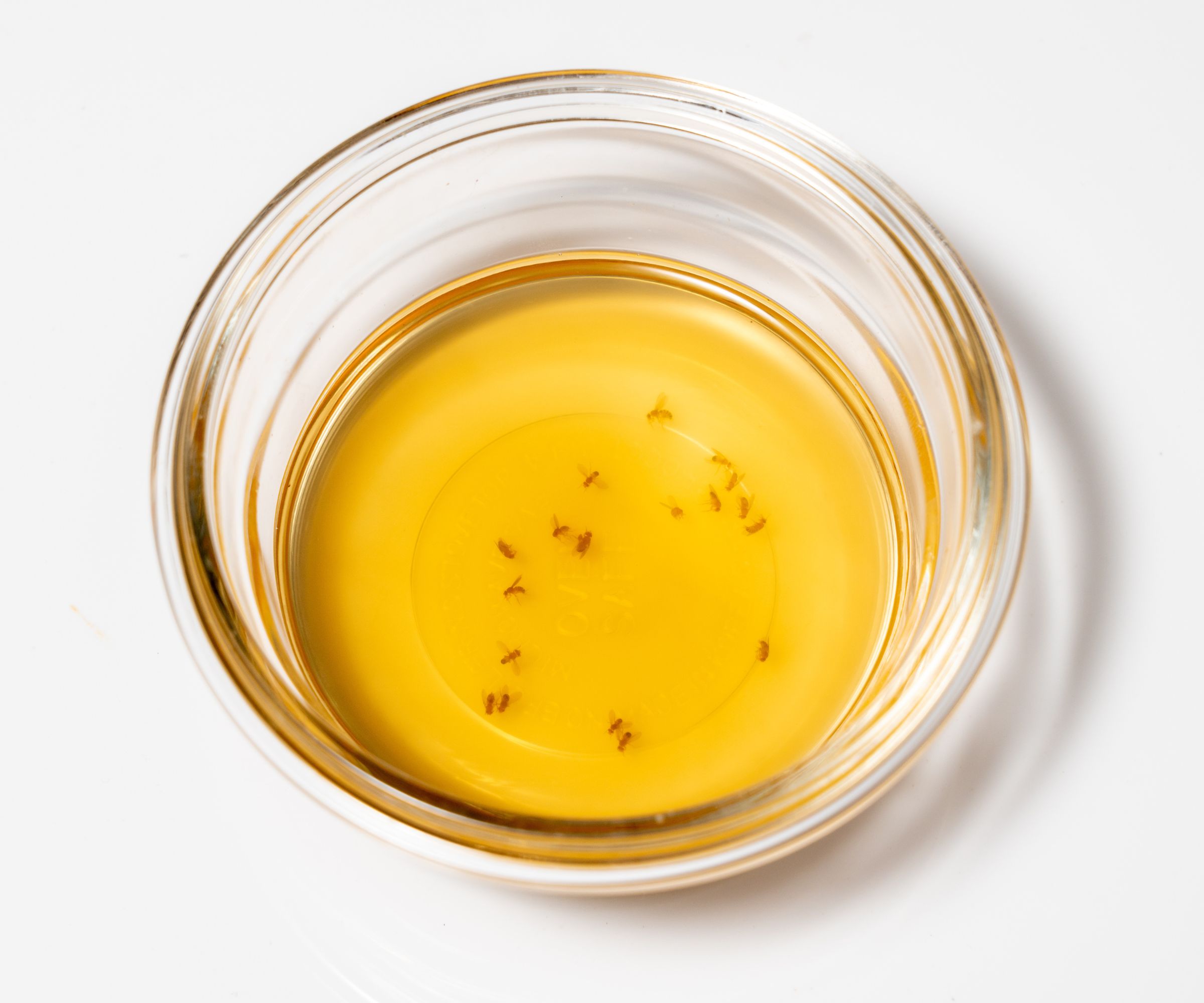
Creating a gnat trap is quick and easy.
To make a vinegar trap, begin my combining half a cup of white vinegar or apple cider vinegar with a tablespoon of sugar, and add a few drops of dish soap, such as the Great Value Ultra Original Dish Liquid available at Walmart, in a jar or bowl, advises John Target, owner and founder of Target Pest Control.
'The sugar and vinegar attract the gnats, while the dish soap traps them,' he explains. Next, cover the jar with plastic wrap, and secure it with a rubber band, before using a pen or pencil to poke several small holes in the plastic wrap.
‘The holes on the top will allow the adults to enter, but will not allow them out,’ explains Tom. ‘There are also commercial vinegar traps as well,’ he adds. ‘These will help eliminate the fruit flies one at a time.’
Then, all that's left to do is place the trap in any areas you've spotted gnats and wait, replacing every few days.
Alternatively, you can also make a spray solution made of equal parts white vinegar and water to use alongside your trap, particularly if you want to get rid of swathes of gnats flying around in the air or landing on your surfaces, suggests Sholom Rosenbloom, pest control expert and owner of Rosenbloom Pest Control.
'Persistent spraying with help to repel the gnats and discourage them from returning,’ Sholom explains. Just make sure to wipe the spray away from areas it has settled on, such as walls and countertops, afterward to prevent drawing gnats away from the trap.
Given that gnats are drawn to sweet substances and rotting food smells, you can also try cleaning with white vinegar as a great way to prevent gnats and discourage them from entering your home, says Marc.
‘Regularly clean your kitchen counters, sinks, and other surfaces with white vinegar to scrub away sticky food residue and cooking smells that may lure gnats in to find a breeding ground,' he advises.
2. Try a red wine trap
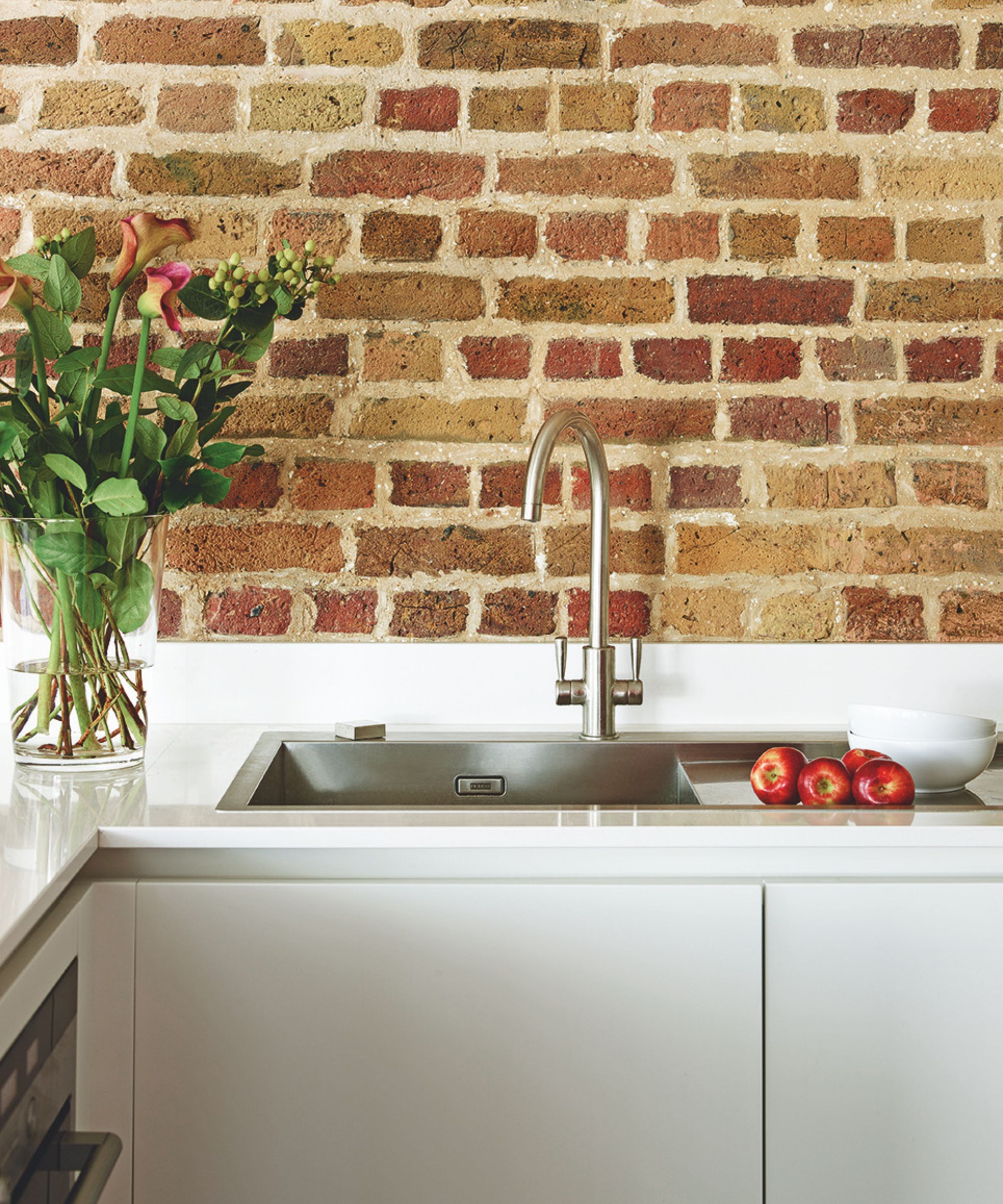
Gnats are typically found in areas of your home with high moisture such as kitchens sinks, or near fruit and plants
Similar to the vinegar DIY gnat trap, these indoor pests can’t resist the aroma of red wine. For this one, all you'll need is some cheap red wine, dish soap, such as the Dawn Ultra Liquid Dish Soap available at Walmart, and a small container.
Brett Bennett, director of operations at PURCOR Pest, advises, 'Fill a container with an inch of red wine and add a drop of dish soap. The soap breaks the surface tension, ensuring gnats sink upon contact.
'Place the container in a gnat-prone area. Leave it overnight and check the results in the morning.'
Try a moisture-prone area such as the kitchen sink, bathroom tub, trash can, or where plants or fruit are kept.
3. Make a ripe fruit trap

Use gnats' nature against them by utilizing ripe fruit for your DIY gnat trap
Use gnats' love for overripe fruit against them with this easy home remedy for getting rid of gnats.
Simply place pieces of ripe fruit in a container, cover the container with plastic wrap, secure it with a rubber band, and poke small holes on top. The fruit will lure them in, while the plastic wrap will keep them trapped.
Keep your DIY gnat trap where you have been regularly encountering or spotting gnats.
4. Try sticky traps
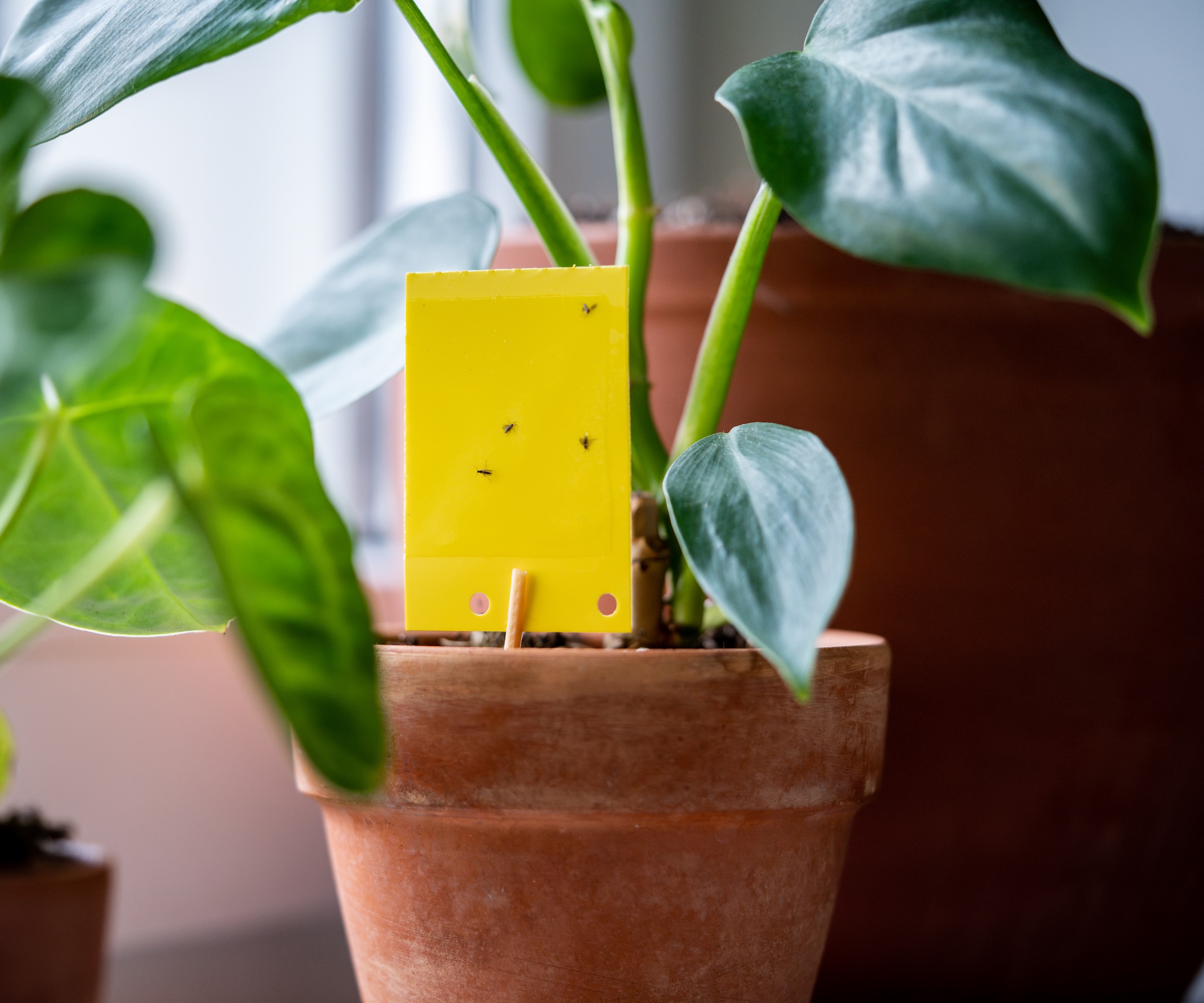
Sticky traps are easy to make, and inexpensive to buy if you would prefer to do so.
This method is great for catching gnats without using liquids. It's also effective for getting rid of bugs from houseplant soil naturally, since, unlike other methods, it ensures no substances impact the plant's health.
To make a DIY sticky gnat trap, pest control expert John advises, 'Coat a piece of yellow construction paper with honey or syrup. The sweet, sticky substance will trap the gnats.'
The color yellow is important here, too, as gnats are attracted to it. Then, attach the paper to a popsicle stick, if you want to stand it in a plant pot, for example, or lie it flat in gnat-infested areas.
If you would prefer not to make your own, we recommend these Fruit Fly Traps, available in a pack of 36 at Amazon.
5. Use candles

Tall candles like these can be used to attract and kill gnats.
Finally, you can use candles to attract and kill gnats. This DIY gnat catcher is probably the easiest to set up, but be careful when burning candles and do not leave them unattended, as this will pose a fire risk.
Exterminator Georgios Liakopoulos directs, 'Put a candle in a candlestick, put it in the middle of a plate, add some water and light it.
'Next, turn off your lights and wait. Gnats will start gathering near the flame and die.'
It's best to use a tall candle for this, such as the Mainstays Unscented Taper Candles available at Walmart.
What to shop
If you want to add some further oomph to your DIY gnat traps, use them in combination with commercial products that can also capture other flying insects that have found their way into your home during hot weather.
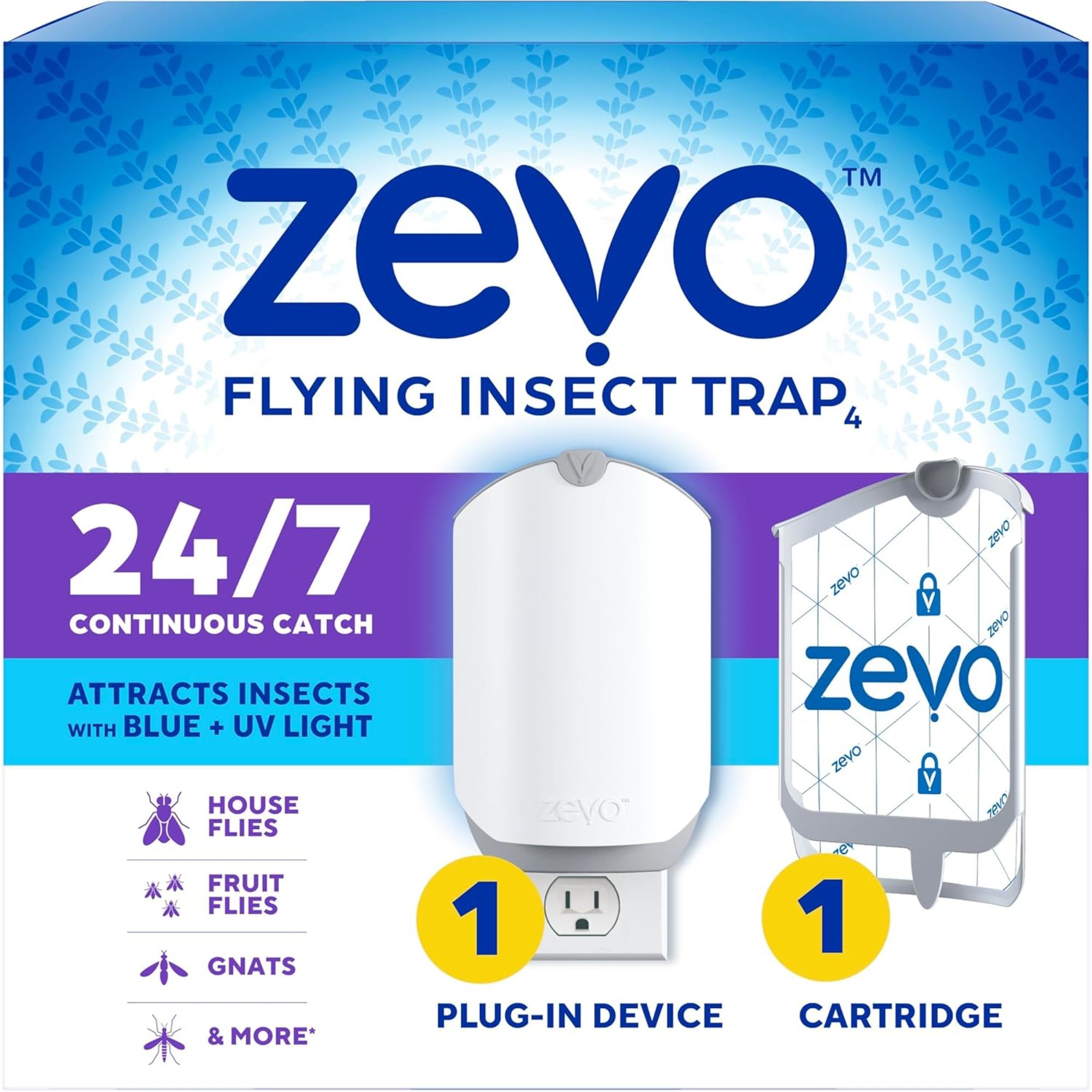
This plug-in device effectively attracts house flies, fruit flies, gnats, and more 24/7 with blue and UV light. With no odor and no mess, it also keeps trapped bugs out of sight.
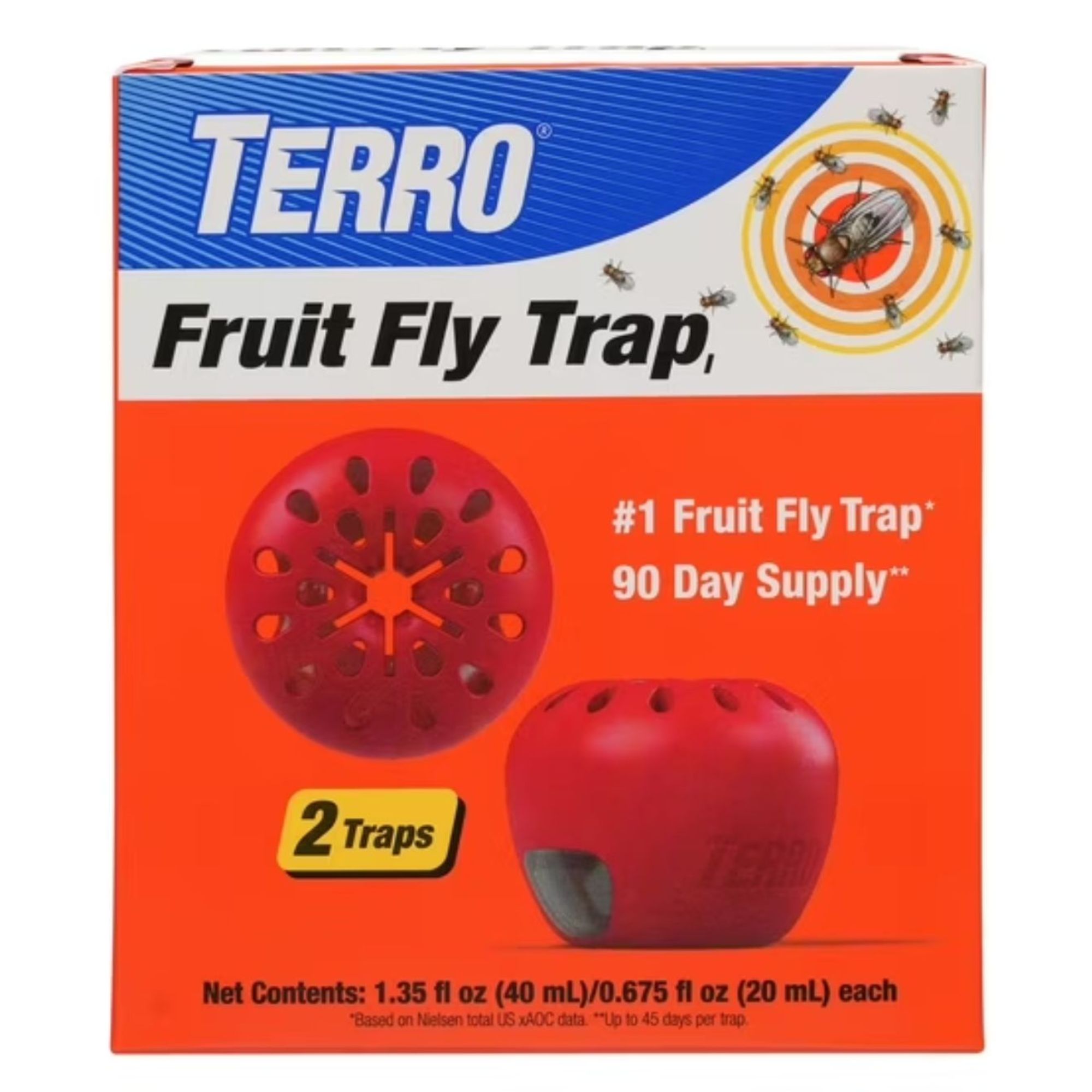
This number one rated fruit fly trap works fast with a unique, discreet design, with each trap in this pack of two lasting 45 days.

These fruit fly traps come ready for use, all you have to do is open the flip top and set them down where gnats are appearing in your home.
FAQs
How long does it take to kill gnats with vinegar?
Killing gnats with vinegar can take some patience but there are some things you can do to help expedite the process. Adding sugar to the vinegar mix, for example, will help to draw the gnats in and encourage them to fall into the liquid. You can also speed up the process by placing the trap close to where the gnats are flitting about.
Common spots are often in the kitchen, around windows, and you will also want to look into getting rid of gnats in plants in your home, since this is another place they gather.
Meet our experts

Sholom Rosenbloom is a pest control expert and owner of Rosenbloom Pest Control in Baltimore, MD. The family business is made up of trained professionals and was voted 2021's top local business in the state, having provided top pest control services for over 23 years.

Target Pest Control, founded in 1988 by John, has been family owned and operated for over three years in Western New York.

Done Right Pest Solutions was established in 2020, with multiple expert technicians who have over 40 years of experience with pest eradication.
'Neem oil is a great way to get rid of fungus gnats in houseplants,' adds Georgios Liakopoulos. 'Simply dilute some of the oil in water, then apply it to both the soil and the plant. Larvae will die in no time.'
Also, if you want to check for gnats' eggs, females often lay eggs in moist areas like soil or decaying organic matter, so check any food waste bins or scraps you're collecting for composting.

Ottilie joined Homes & Gardens in 2024 as the News Writer on Solved, after finishing a Master's in Magazine Journalism at City, University of London. Now, as the Sleep Editor, she spends her days hunting deals and producing content on all things sleep – from mattresses and sheets to protectors and pillows, all of which she tests in her own home. She also has particular expertise in home fragrance, covering everything from candles to reed diffusers.
Previously, she has written for Livingetc and Motorsport Magazine, and also has a Master's degree in English Literature and History of Art from the University of Edinburgh, where she developed a love for inspiring interiors and architecture.
- Chiana DicksonKitchen Appliances Editor